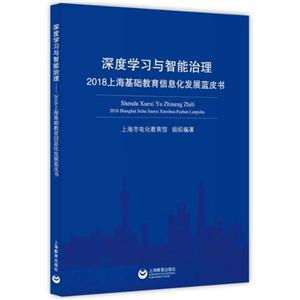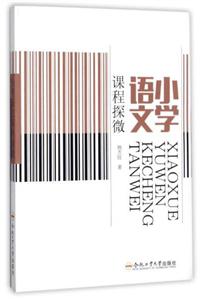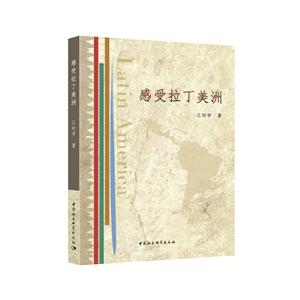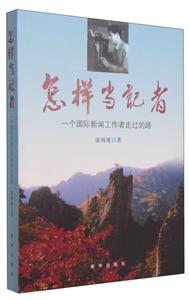中国新时期反腐败历程

|
中国新时期反腐败历程作者:任建明 开 本:32开 书号ISBN:9787119094274 定价:88.0 出版时间:2015-05-01 出版社:外文出版社 |
中国新时期反腐败历程 内容简介
《中国新时期反腐败历程(英文版)》在阐述腐败和反腐败具有历史性、世界性和复杂性等特点的基础上,对中国共产党对腐败问题的认识深入过程,长期以来在反腐败方面所作的努力,以及在反腐倡廉方面取得的明显成效等进行总结和论述,从而表明中国共产党是立党为公、执政为民的,有信心、有能力解决好腐败问题,提高自身执政能力。
中国新时期反腐败历程 目录
序言:直面拒腐防变的严峻考验一、历史性、世界性和复杂性——中国腐败问题的多面透视
1.必然性与偶然性——社会主义中国也没有天然的腐败免疫力
2.历史性与世界性——腐败现象历史久远并散布于当今世界各个角落
3.复杂性与危害性——众说纷纭中解析腐败现象的实质
4.阶段性与挑战性——转型期中国腐败的“易发多发”
二、集体领导和会议决策——彰显中国反腐败的决心与特色
1.坚定不移反对腐败:党一贯坚持的鲜明政治立场
2.建设廉洁政治:反腐败的战略目标及其探索历程
3.凝聚全党智慧:集体领导和会议决策制度
4.坚持“三个自信”:持续探索中国特色反腐倡廉道路
三、踏石留印、抓铁有痕——作风建设上动真格
1.把作风问题当作重要问题来抓
2.作风建设的基本内容
3.从中央政治局做起——以上促下、以上带下
4.大力开展党的群众路线教育实践活动
5.让人民群众看到了变化和希望
四、“老虎”“苍蝇”一起打——以零容忍态度惩治腐败
1.抓大而不放小:十八大以来对贪腐“大小通吃”
2.不变中有变化:惩治腐败重点转换的三个历史阶段
3.在法律与纪律“两个轮子”上前行:反腐败制度体系的中国特色
4.重塑能力:自身硬才能实现零容忍
五、把权力关进制度的笼子里——以全面深化改革和系统制度建设预防腐败
1.系统谋划、主动出击
2.源头治理:廉政风险防控
3.建章立制:以制度制约和规范权力
4.改革创新:以改革推动廉政建设
结语:向着廉洁政治的宏伟目标迈进
后记
中国新时期反腐败历程 节选
《中国新时期反腐败历程(英文版)》: Besides, there is another way to classify corruption, that is,to classify corruption into petty corruption and grand corruption in line with the ranks of the people committing the crime and the amounts of money involved. The phenomenal expressions of corruptions are as complicated as its causes. To seek satisfactory ways to prevent and combat corruption, people have made prolonged studies of its causes, as testified by the continuous lengthening of the list of the causes.How numerous they are, the phenomena of corruption can be summarized into the single-cause theories and multiple-cause theories. Single-cause theories, literally attempt to find the sole reason or root cause accounting for corruption, while multiple-cause theories attribute corruption to two or more reasons or causes. Covered in the single-cause theories are the theories of corruption of human nature, power, moral values and culture,as well as corruption in relation to modernization. The weaknesses of human nature, such as greed, selfishness,self-interest and insatiability, constitute an important cause for corruption, one that is the earliest known and generally acknowledged. James Madison (1751-1836), the fourth president of the United States, once said, "If men were angels, then no government would be necessary. If angels were to govern men, neither external nor internal controls on government would be necessary." His words reveal a basic fact that men are not angels, they are mortals; they have weaknesses which they are born with. All infamous corrupt officials throughout history are insatiably greedy, revealing to the full the weaknesses of human nature. Ferdinand Marcos (1917-1989) was the sixth president of the Philippines. During the 20 years of his presidency (1965 to 1985), Marcos and his wife amassed an appalling amount of wealth. Some people estimated that the wealth of the Marcos fanuly might have reached over ten billion US dollars at one point. After the Marcos couple fled the country in early 1986,the new government immediately ordered the freezing of all of Marcos' assets, and those of his relatives and friends as well. An integrity committee was established to specifically audit Marcos family's assets in the Philippines and abroad. After three years of investigation, the committee determined the wealth of the Marcos family: 4,500 acres of real estate, 5,000 acres of land,23 farms, 232 companies, 18 TV stations, 36 radio stations, 29 auplanes, 13 yachts, one billion US dollars in cash, several tons of gold, and one billion US dollars in jewelry in the Philippines. Additionally, they had four office buildings in Manhattan, New York; villas in Beverly Hills and Honolulu, and 700-million-dollar worth in cash and jewelry in the United States; one billion US dollars in Switzerland; 500 million US dollars in Australia;and at least 300 million US dollars in Brazil. The Marcos family owned a massive number of properties and deposits in Hong Kong, Indonesia, the Netherlands, the United Kingdom and the Bahamas. Despite the findings, no one knows how many more assets the Marcos family actually possessed. Imelda Marcos' over-the-top luxurious lifestyle shocked and angered the Filipinos. In Imelda's bedroom, expensive French perfumes crowded her toiletry table. She even used a gilt basin to wash her face. There were several hundred articles of expensive ……
政治军事 政治 党政读物
在线阅读
- 最新内容
- 相关内容
- 网友推荐
- 图文推荐
| [高考] 2022 西安电子科技大学《软件工程》大作业答案 (2022-04-25) |
| [家长教育] 孩子为什么会和父母感情疏离? (2019-07-14) |
| [教师分享] 给远方姐姐的一封信 (2018-11-07) |
| [教师分享] 伸缩门 (2018-11-07) |
| [教师分享] 回家乡 (2018-11-07) |
| [教师分享] 是风味也是人间 (2018-11-07) |
| [教师分享] 一句格言的启示 (2018-11-07) |
| [教师分享] 无规矩不成方圆 (2018-11-07) |
| [教师分享] 第十届全国教育名家论坛有感(二) (2018-11-07) |
| [教师分享] 贪玩的小狗 (2018-11-07) |






